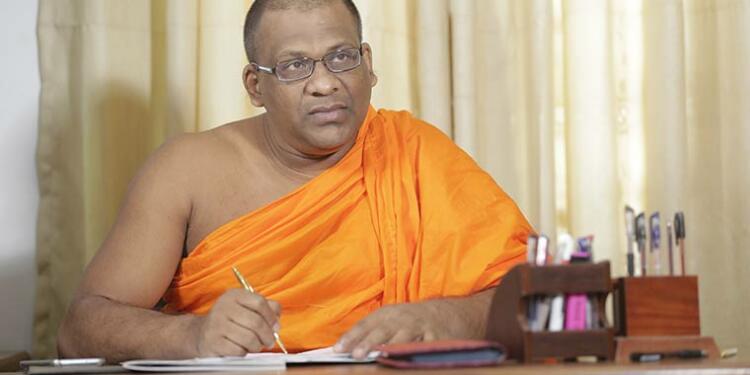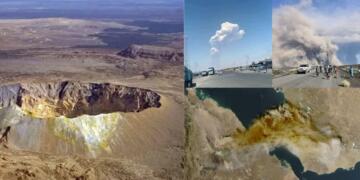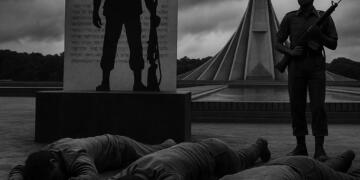After the deadly easter bombings of 2019 which resulted in the death of more than 250 people, the Buddhist majority nation of Sri Lanka has taken various punitive steps to curb the rise of Wahhabism and radical Islam in the island country. Taking a step in the same direction, Sri Lankan President Gotabaya Rajapaksa recently appointed a Buddhist monk named Galagodaatte Gnanasara of the Bodu Bala Sena (Buddhist Power Force) as head of a task force for the establishment of the ‘One Country, One law’ concept.
According to a gazette notification issued, Gnanasara will lead the 13-member ‘Presidential Task Force’. The panel has been given four months to compile a report so that “all citizens are treated alike in the eye of the law”.
The said monk is known for his hardline thoughts on Islam and sources privy to the matter believe that under him, the country could see a slew of modern ideas implemented to clip the wings of Islamic radicalism that has become a menace for the island South Asian country as well.
Cabinet cleared a proposal for banning Burqa
As reported by TFI, Sri Lanka’s Minister for public security Sarath Weerasekera in March, earlier this year had signed a paper that sought to ban the full-face covering worn by some Muslim women on “national security” grounds. In April, the decision was passed by the cabinet as well. The last hurdle remains the parliament, after which the decision is expected to be implemented on the ground.
Sri Lanka had temporarily banned the wearing of the burqa. Anybody who has observed the Sri Lankan polity keenly over the past few years would have expected this move.
Read More: Crackdown on Islamic extremism: Sri Lanka all set to ban Burqa, shut down Madrasas
Rajapaksa clamping down on radicals
Sri Lankan President Gotabaya Rajapaksa, who is best known for crushing a decades-long insurgency in the north of the country during his stint as the defence secretary, won the elections on the grounds of promising to crack down on extremism.
In January 2020, Sri Lanka PM, Mahinda Rajapaksa had ordered the Muslim Religious Affairs Department to register all Madrasas in the country with the Department. Rajapaksa had also directed the officials of the Muslim Religious Affairs Department to re-evaluate the curricula of all Madrasas and to prepare an updated curriculum with the assistance of the Education Ministry.
Read More: Register and revamp all Madrasas: Sri Lanka’s big move to curb Islamic indoctrination
Sri Lanka initially had a broad and open community of Islamic culture. The change in Islam in Sri Lanka took another turn, after the sectarian tensions following the Civil War. The harmony died out after the extremism in the faith started gaining strong ground.
This change was remarkably observed after the Gulf War. Those who migrated to the Gulf states for work came back with a sterner strain of Islam. This is how extremists established a more rigid Islam in Sri Lanka. However, the current Rajapaksa administration with its ‘taking no prisoners’ attitude is going all out in the war against radical Islam.





























Well Done Sri Lanka.
Hello India, please learn from Sri Lanka and reform centuries old bias to abolish the stupid Minority-Majority divide and bring in Uniform Civil Code, Free Hindu Temples immediately. Citizens are fed up with ridiculous bias and have lost all patience and can’t wait anymore, don’t test the tolerance.